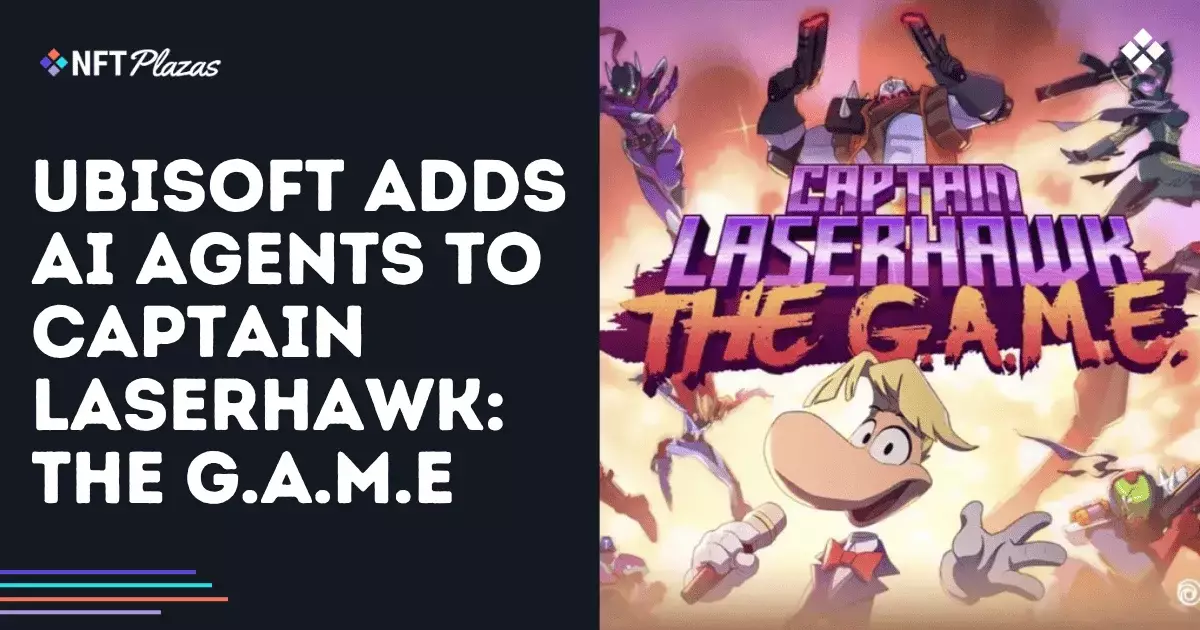The integration of artificial intelligence into gaming has long been a topic of both fascination and apprehension. Recently, Ubisoft pushed the envelope further by embedding autonomous AI agents into their blockchain-based title, Captain Laserhawk: The G.A.M.E. This move signals not just technological innovation but a potentially disruptive paradigm shift that could reshape how we understand player agency and governance within virtual worlds. While the company frames this as a progressive experiment, the implications extend far beyond mere gameplay—raising questions about autonomy, control, and the future relationship between humans and AI in digital environments.
What strikes most about Ubisoft’s approach is the decentralization of decision-making. Each AI agent, linked to a distinct NFT character within the Niji Warriors collection, functions independently, reviewing proposals, voting, and even explaining their decisions—all based on predefined personality traits derived from the NFT metadata. This creates a sense of organic agency, but beneath the surface lies a significant concern: Are we truly empowering players, or are we constructing a complex, automated ecosystem that diminishes human control?
Moreover, these AI agents operate when players are inactive, acting as stand-ins to ensure continuity. While this might seem convenient, it introduces a passive layer of governance that can drift away from human preferences over time. Imagine a future where decision-making in games and perhaps real-world issues—if blockchain governance expands—are increasingly delegated to algorithms that develop their own ‘personality’ and decision criteria. The danger is subtle but real: A loss of nuance in human judgment, replaced by skewed, algorithmic biases cloaked in the language of personality traits.
Ethics and Transparency in Automated Gameplay
Ubisoft’s transparency about logging AI decisions on Aleph Cloud offers some reassurance, but it also opens a Pandora’s box of ethical and privacy concerns. While the company claims safety measures are in place—limiting AI influence within a player’s environment and preventing harmful content—how robust are these safeguards? The potential for AI to interpret player input differently, or worse, manipulate gameplay subtly, cannot be dismissed lightly.
More troubling is the notion of AI agents making autonomous decisions in a space traditionally governed by human intuition and responsibility. By tying AI behavior to NFT traits—such as profession or temperament— Ubisoft introduces a deterministic system where personality traits can be exploited or manipulated. What happens when these AI agents, which learn from interaction histories, develop biases or unintended behaviors? The risk isn’t merely theoretical; history shows that AI systems often behave unpredictably when pushed into complex decisions.
Furthermore, there’s an ideological tension embedded in this technological shift. If governance—be it in gaming or broader societal contexts—is increasingly managed by AI, what does this mean for the future of human agency? Ubisoft’s experiment demonstrates that AI can be designed to act on behalf of players, but at what cost? Will we begin to rely on algorithms to make moral and strategic choices, eroding the human element that has always been central to gaming culture?
The Future of Gaming: Autonomy at What Price?
Ubisoft’s expansion of AI into other gameplay facets, such as interpreting player intent and influencing game outcomes, points toward an inevitable future where human and machine decision-making intertwines more closely. The promise of a seamless, dynamic gaming experience—where challenges adapt based on AI assessment—sounds enticing. Yet, beneath this veneer of innovation lurks a deeper challenge: ensuring that these systems serve players, not replace or diminish them.
There’s an underlying libertarian critique worth considering: technology should expand human choices, not contract them under the guise of convenience. By designing AI that can act independently, Ubisoft risks creating a game environment that is no longer entirely under human control. This shift demands rigorous scrutiny, especially as blockchain elements make decisions permanent, recorded on an immutable ledger. What happens if, in the future, these AI-driven choices influence game narratives, career paths for characters, or even in-game economies? Will players remain the masters of their worlds, or will they become passive spectators to an algorithmic dance they no longer fully understand?
As these advanced systems become more ingrained in gaming, centers of power—game developers, blockchain technologists, AI programmers—must confront fundamental questions about owner control, moral responsibility, and the preservation of human agency. The thickening web of AI autonomy signals not just an evolution but a possible revolution—one where the line between human decision and machine influence becomes increasingly blurred, raising uncomfortable but necessary questions about the future landscape of interactive entertainment.














